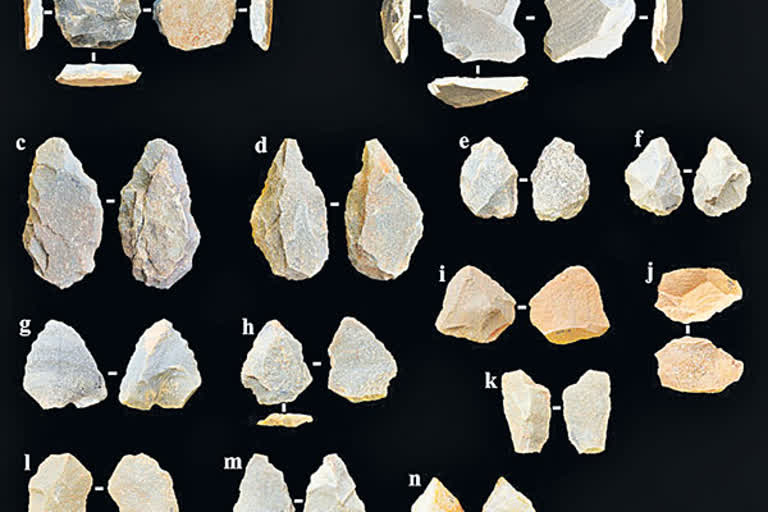Amaravati: A research carried out by a team of researchers led by Devara Anil Kumar - an assistant professor in the Department of Archaeology of Maharaja Sayajirao University (MSU) in Gujarat's Vadodara found tools at Hanumanthunipadu in the Prakasam district of Andhra Pradesh that dates back to 2.47 lakh years ago apparently questioning the existing theory that Homo Sapiens migrated from Africa to India about 1.22 lakh years ago only.
It is believed that the tools were made by primitive humans, who lived in the region 1.25 million years before Homo Sapiens. Anil Kumar's excavations in 2018 as part of his PhD project at Hanumanthunipadu on the banks of Paleti near Kanigiri in the Prakasam district unearthed tools dating back to the Middle Stone Age. They were confirmed to be 2.47 lakh years old through 'scientific dating' tests at the luminescence laboratory of the Physical Research Lab (PRL) in Ahmedabad.
The issue came to the attention of the world when the 'Journal of Archaeological Science' recently published the papers presented by Devara Anil Kumar and his colleagues on the research. Based on the stone tools found in the excavations at Muchchetla, Chintamanigavi and Jwalapura in Nandyala district of Andhra Pradesh, Sandhav in the Kutch region of Gujarat, Katoti in Rajasthan and Dhaballo in Madhya Pradesh, archaeologists had so far said that modern humans migrated to India from Africa 1.22 million years ago.
